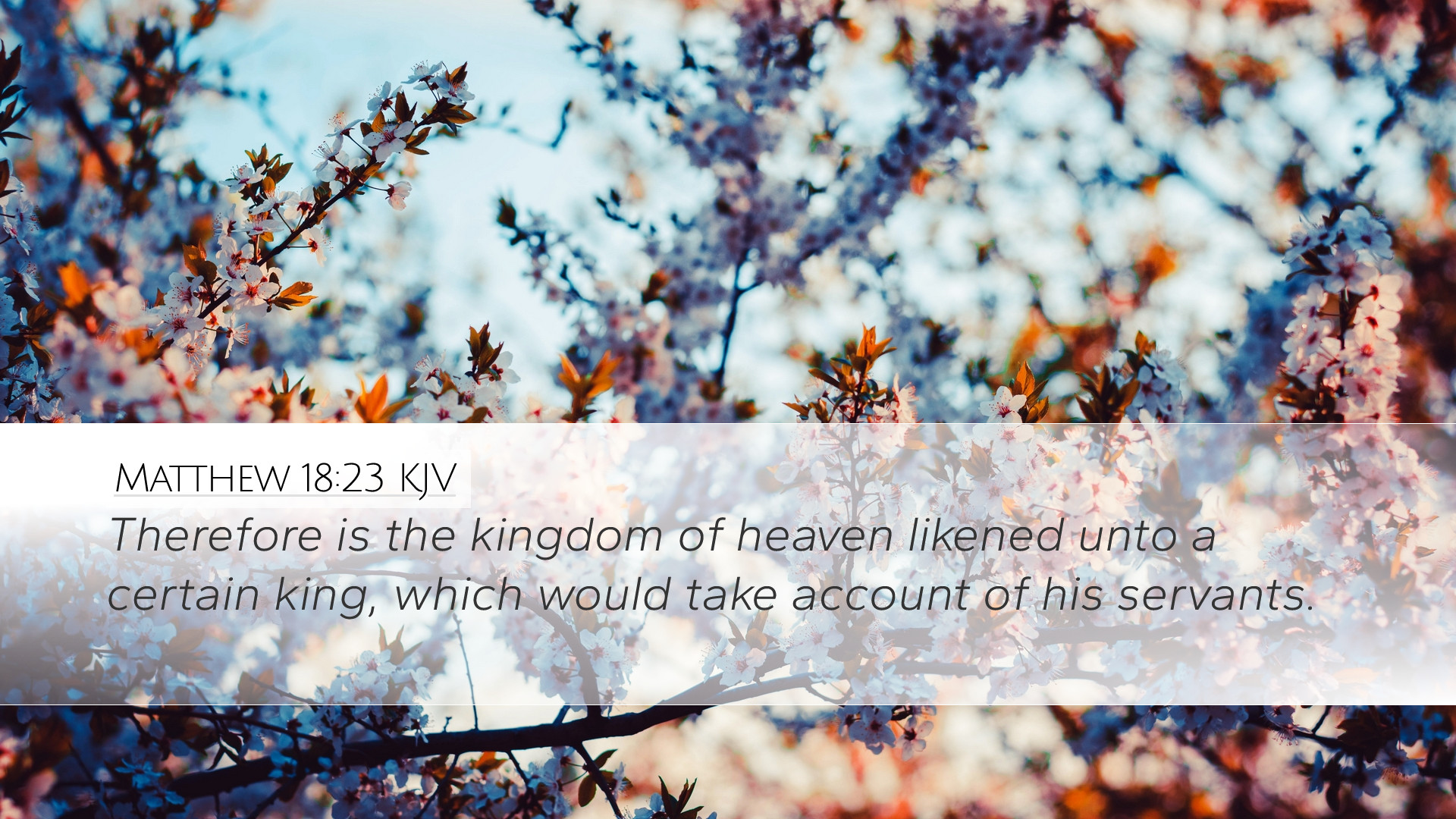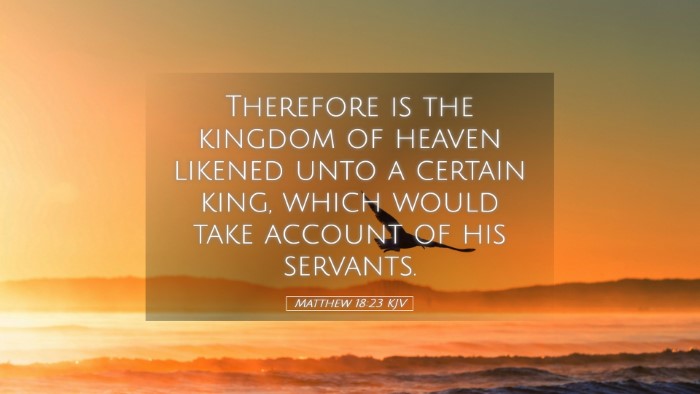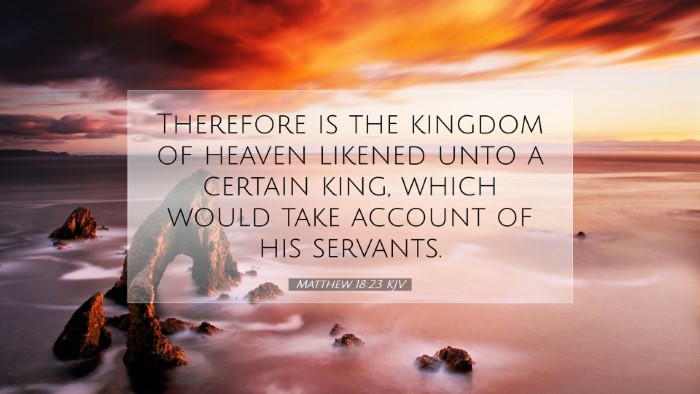Commentary on Matthew 18:23
Matthew 18:23 states: "Therefore is the kingdom of heaven likened unto a certain king, which would take account of his servants." This verse initiates a profound parable that speaks volumes about forgiveness, mercy, and the nature of God's grace. In this commentary, we will delve into the insights provided by renowned public domain commentators such as Matthew Henry, Albert Barnes, and Adam Clarke.
Contextual Overview
This verse is part of a larger discourse by Jesus, aimed at illustrating the dynamics of forgiveness in the kingdom of heaven. Matthew Henry notes that the parable is introduced with the context of the church's way of dealing with offenses and the necessity of forgiveness. The 'king' represents God, while the servants symbolize humanity who owes the king a great debt.
The King’s Initiative
Matthew Henry emphasizes that the king's decision to take account of his servants signifies divine judgment. It echoes the idea that there must be an accounting for our actions and debts before God.
The Divine King
In describing the king, Albert Barnes highlights how the figure represents God's sovereignty and authority—invested with the power to forgive or enact justice. The king's desire to take account suggests an orderly administration of His kingdom, where every person is accountable.
The Significance of ‘Taking Account’
Adam Clarke expounds on the notion of “taking account,” which illustrates a moment of reckoning, a time to weigh the balance between what we owe and what we are able to pay. This represents God's desire for His creation to recognize their state of indebtedness due to sin and rebellion against Him.
The Implications for Believers
For pastors and theologians, it is crucial to highlight how this call to accountability is not merely punitive. Clarke suggests that recognizing our debts is the first step toward acknowledging our need for divine grace and forgiveness, thus initiating a transformative process within the believer.
The Nature of Forgiveness
Henry further explores the implications of the king's judgment and the subsequent responses of the servants in the parable. The king's willingness to forgive not only illustrates grace but also sets the standard for how believers ought to treat one another.
A Call to Personal Reflection
In reflecting on this parable, Henry encourages a personal examination of our own hearts. Are we willing to forgive those who owe us? This parable serves as a mirror, reflecting our own need for mercy while calling us to extend that mercy to others.
The Accountability of Servants
As the king accounts for his servants, it illustrates that God will ultimately hold His followers accountable for their actions. Barnes points out that every “servant” must face the realities of their indebtedness, and this serves as a reminder of the seriousness of sin, both to God and to one another.
Encouragement for Students of the Word
For students and scholars, the exploration of this text poses critical questions regarding the nature of sin and grace. How might this parable influence our systemic theological understandings? What implications does it have for our view on justice and mercy in contemporary contexts?
Application of the Parable
In practical terms, the parable of the unforgiving servant, which continues in this chapter, highlights the notion that recognizing our debts should provoke a spirit of forgiveness towards others. This principle is foundational to Christian living.
The Transformative Power of Forgiveness
Henry articulates that genuine forgiveness leads to a transformation of both the forgiver and the forgiven. It softens hearts, heals relationships, and reshapes communities, emphasizing the kingdom values that Jesus was establishing with His teachings.
Theological Reflections
From a theological standpoint, Clarke points out that the enactment of forgiveness by the servants becomes a defining characteristic of those who belong to the kingdom. The currency of the kingdom is grace, and it is something that believers are expected to share generously.
Conclusion
In conclusion, Matthew 18:23 sets the stage for a rich theological exploration of the concepts of debt, forgiveness, and the character of God as a merciful king. For pastors, students, and scholars, this text beckons a lifelong journey of understanding grace and extending it generously to others, mirroring the unconditional love that our King has shown us. As we continue to reflect upon this parable, let us strive to live out its profound truths in our communities, embodying the grace we have received.


